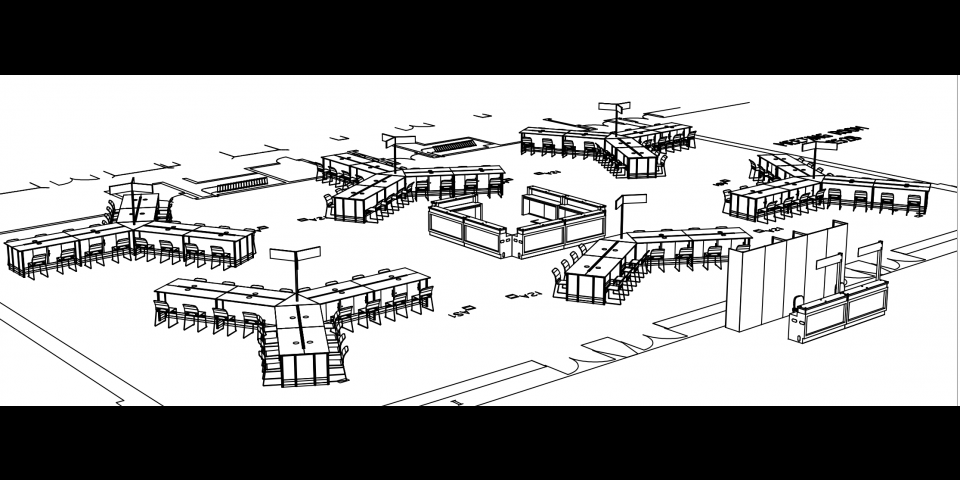This year in Boston, MA you can attend the Red Hat Summit 2017, the event to get your updates on open source technologies and meet with all the experts you follow throughout the year.
It’s taking place from May 2-4 and is full of interesting sessions, keynotes, and labs.
This year I was part of the process of selecting the labs you are going to experience at Red Hat Summit and wanted to share them to help you plan your cloud and containers labs experience. These labs are for you to spend time with the experts who will teach you hands-on and how to get the most out of development with containers and in the Cloud using products like OpenShift Container Platform.
Each lab is a 2-hour session, so planning is essential to getting the most out of your days at Red Hat Summit.
As you might be struggling to find and plan your sessions together with some lab time, here is an overview of the labs, you can find the exact room and times in the session catalog. Each entry includes the lab number, title, abstract, instructors, and is linked to the session catalog entry:
L103118 - Linux container internals
Have you ever wondered how Linux containers work? How they really work, deep down inside? Questions like: How does sVirt/SELinux, SECCOMP, namespaces, and isolation really work? How does the Docker Daemon work? How does Kubernetes talk to the Docker Daemon? How are container images made? In this lab, we'll answer all these questions and more. If you want a deep technical understanding of containers, this is the lab for you. Red Hat engineers will walk you through the deep, dark internals of the container host and what’s packaged in the container image. You'll get the knowledge and confidence it takes to apply your current Linux technical knowledge to containers.
Instructors: Vinny Valdez, Scott McCarty
L104866 - Cirque du application development—containers, Kubernetes, and OpenShift
In this lab, we'll prepare web and application developers to build applications using containers, Kubernetes, and OpenShift. We’ll start with a short introduction to containers and Kubernetes, which are the foundation of OpenShift. Using hands-on exercises, we'll walk you through a variety of applications and uses cases for OpenShift. How about seeing how easy it can be to deploy your pre-built containers? And how health checks to OpenShift can heal your application? We'll dig in to build containers just using a git repository. Want to see easy application scaling? No problem. Wish you could do A/B deployment? Your wish is our command. And finally, we'll show you a complete microservice application with database and polyglot back-end services. You bring your curiosity and willingness to code, and we'll teach you all you need to go home and start building pure awesomeness on OpenShift.
Instructors: Steven Pousty, Marek Jelen, Charlotte Ellet
L104353 - Managing the life cycle of your OpenShift cluster from installation and beyond
Configuring distributed systems can be difficult. Fortunately, automation tools such as Ansible are available to help manage even the most complex environments. In this lab, you'll take the reigns of your own cluster and experience firsthand how Ansible can be used to install, configure, and maintain OpenShift to support mission-critical systems. Once you install Red Hat OpenShift, you'll learn how to diagnose, troubleshoot, and resolve common platform issues. Managing the platform doesn't stop once the installation is complete. You'll use Ansible to simplify ongoing maintenance and to make worry-free platform upgrades, all facilitated in an automated fashion. Finally, the use of centralized management systems will be introduced into the environment in order to demonstrate its importance and to provide a streamlined experience for both platform maintainers and users.
Instructors: Andrew Block, Jason DeTiberus, and Scott Collier
L100070 - OpenShift for operators
OpenShift is not just a simple container orchestration platform. It combines a wealth of developer-focused, self-service features with a rich set of administrative policy controls. The OpenShift operator's job is to pull the right levers in the right ways to enable their organization's applications to be built, deployed, scaled, and managed effectively using Red Hat OpenShift Container Platform. In this lab, you'll learn how to manage various run-time aspects of an OpenShift cluster, from quotas and limits to user management and node management tasks. This lab is highly recommended for administrators or operators who are considering using or deploying, OpenShift.
Instructors: Harrison Ripps, Erik Jacobs, and Jim Minter
As you can see, there is plenty of cloud and containers for you to get hands-on through the week and hope to welcome you to one or more of the labs!
Visit Red Hat Openshift Container Platform for an overview.
Last updated: June 16, 2023
